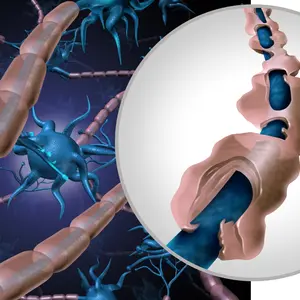

Functional Medicine

Functional Medicine
Insights from an Autoimmune Disorders Expert
Dr. Samuel Yanuck, DC, CEO of Cogence Immunology and adjunct assistant professor at the University of North Carolina School of Medicine, recently offered his clinical insights on the following topics related to his practice treating autoimmune issues.
Driving Forces of Disease
Dr. Yanuck seeks to build a map of the patient’s case to understand the drivers of the condition, or how the autoimmune process is occurring in the full context of the patient’s life. This often results in an intervention strategy that offers better outcomes than just a specific diagnostic label.
Neurological Inflammation
When evaluating neuro-inflammatory processes in patients with autoimmune dysfunction, Dr. Yanuck discusses the chemical signals between the brain’s microglial cells and neurons. He suggests looking for causes of systemic inflammation in order to treat brain inflammation and curb the loss of neurons; these causes may include dysbiosis, insulin resistance, or chronic stress. He points out that lab markers for inflammation, such as C-reactive protein, may not be adequately sensitive; practitioners must also look at patient history for clues to the extent of inflammation.
Regulation of T-Cells
Use of black elderberry is cause for concern in autoimmune patients. Dr. Yanuck explains that black elderberry is an IL-6 promoter, which signals naïve T-cells to become TH17 cells. Once activated, these cells promote autoimmune tissue destruction. Dr. Yanuck suggests supplementing with specific vitamins and botanicals to regulate TH17 cells.
Taking the High Road
Inspired by Dr. James Fries of Stanford University, Dr. Yanuck promotes a three-layer concept for overall health of patients. The top layer refers to youth and the bottom layer refers to chronic diseases associated with morbidity. The middle layer includes all the declines in function and ailments that affect quality of life; studying clues in this layer can help physicians identify clinical targets with the goal of maximizing wellness for as long as possible.
REFERENCES
The Institute for Functional Medicine. (2020). Autoimmune disorders: Driving forces, the inflamed brain, and taking the high road. Retrieved from https://www.ifm.org/news-insights/autoimmune-disorders-driving-forces-inflamed-brain-taking-high-ro…


 By
By







